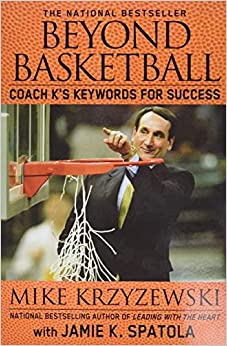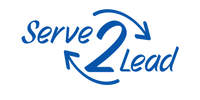Bridging Leadership Lessons from the Workplace and Those Experiences Shaping Today's Youth and Tomorrow's Leaders
 UPDATED 2/12/24: During some sessions I have been providing on leadership development, I have had multiple conversations with both new and experienced managers on the topic of removing the word “but” when you are giving feedback. Too often, more experienced people can’t help but provide “constructive criticism” when trying to provide advice on how to improve. In reality, it is still criticism, and nobody like to be criticized. Due to the positive impact from the brief discussions I had with session participants, I decided to update and re-share this article as a nice reminder on how to deliver feedback. Focusing on the desired outcome instead of critiquing what has happened is a simple mindset change that can be powerful in the results you see from those you are guiding. A great philosopher once wrote, “The power of reading is not in the act of reading a book but instead in the gathering of knowledge to expand your wisdom.” Okay, so maybe that didn’t come from a great philosopher, but it does drive home the point of why we read. To help you get Beyond Today, I would like to share some wisdom that I picked up a few years ago. I cannot share with you the book or article it came from as I do not recall the title, but I did retain the knowledge that was written on the pages. You can improve engagement and empowerment in your team by replacing the word “but” with “now” when providing feedback. Replacing the Negative You will find numerous articles and books that talk about replacing “but” with “and” which is also powerful. The word “but” is an adversative conjunction while “and” is a cumulative conjunction. For all of you grammar nerds out there, an adversative conjunction expresses opposite or contrast between two statements. This provides a natural negative connotation while using “and” is additive and a more positive impact. While “and” is additive, using the word “now” provides an opportunity for continued success. It implies that there are even greater things to come. Use of the word “but” leaves you with the feeling that it could have been better; if you had tried harder, if you were smarter, if you were any good. How many times have you recognized the good deeds of a teammate only to follow it up with constructive criticism? You are only trying to help them get better and reach their full potential. BUT your advice was not received the way you had hoped. The good vibes you created were quickly dismissed by pointing out areas to improve. I am guilty. Using Now to Show Potential Compare and contrast the two statements: “I like the way your presentation came together, but if you had provided a solid wrap up with some specific examples of outcomes it would have really hit a homerun.” “I like the way your presentation came together. Now if you provide a solid wrap up with some specific examples of outcomes it will really hit a homerun.” In the first statement, “but” is a limiter. It separates what you did from what you should have done. It creates a past event and reflects backward on how it should have been improved. In the second statement, “now” is an expander and enables you to reach greater heights. The power is not in exchanging the words but in the message that the word “now” helps to deliver. By moving from the past tense (“if you had provided”) to present or future tense (“if you provide”) it enables you to focus on the future outcome and the potential instead of the inadequacy of the presentation. In my 3 Pillars of Impact: Varsity Edition, I talk about the importance of Courage to Challenge. In the varsity edition, I highlight the difference between spending time talking about What We Did versus What We Need. What focuses on what happened in the past, the negative. The other focuses on what is possible. “Now” is a promotion. “Now” is ready to take the next step. “Now” is “oh, yah, watch this!” Words matter to people. As leaders, we should always encourage and talk about the future instead of criticizing and focusing on the past. Change your mind set by using “now” to move Beyond Today.
0 Comments
 The blessing of having a mentor is that they genuinely take pride in your growth and development. Mine, Steve Moles, knows the passion I have for basketball as both a Dad and a coach. He has sat with me and cheered on my sons as well as observed me coach my youth teams during tournaments. Because of this, he shared the book Beyond Basketball: Coach K’s Keywords For Success written by Hall of Fame Duke Basketball coach Mike Krzyzewski and his daughter Jamie Spatola. The book was more than a gift, it was a tool that helped me ask questions regarding my own leadership and the impact I have on others. One of the ways to impact others that Steve and I were able to identify is to share what I have learned through my reading of this book and other experiences by writing an article in my company newsletter. Through this article, I hope to share what I have learned from the book, encourage you to read it yourself and suggest a few ways that you can apply what you learn so that you may have an impact on others, like Steve has had an impact on me; Beyond Today. In the book Coach K identifies forty keywords that were critical in shaping him as a person and coach but also in how he was able to impact so many others - on and off the court. Coach K says “this book is not about merely USING or borrowing words; it is about owning them.” His approach in the book was to first provide some background and definition on the word, then he would go into detail on why the word had value for him in his life and then he would give examples from his life experiences to demonstrate the word in action. You don’t have to be a basketball fan to enjoy this book, but if you are, you will enjoy his references to games and players from his history. What stands out most, is how leadership is demonstrated in various ways that are not always traditional or obvious and Coach K continues to learn and grow from peers and more importantly, from his players. The insight into the relationships he has with others and how we can connect through the decades with different types of players and maintain mutual respect. This respect is best showcased through the loyalty demonstrated by his players that take on a role as an assistant coach that eventually leave to become the head coach at another college. He inspires loyalty and he inspires others to give back in similar ways. These traits go beyond the hardwood and straight to the shop floor, the office and the family room. Coach K provides opportunities for us to consider words such as Adversity, Balance, Dependability, Empathy and Selflessness. He also talks about Giving Back, Failure, Poise and Ownership. All words that can be impactful to you as a leader and simply a person of growth. To get the most out of this book, I would suggest that first, you take notes as you read the chapter on each word. Since each word has its own chapter and typically ranges from 3 to 5 pages, they are pretty quick reads. I would read a chapter or two each morning, like a daily devotional if you will. As you read each word, think about what would be your definition? What examples of the word come to mind? How would you apply it to your life - at work, with family and friends? When you are done, ask yourself which word impacts you the most. My impactful word was COURAGE. Daring to do what you imagine. Coach K. wrote that “People do not attempt things because they fear the consequences. But the greatest consequence of all comes in NOT attempting to do the things that you believe you can.” How powerful is that simple statement? Have you experienced that fear and let it transition into regret? An unexpected benefit I received as I read through the chapters is that I found myself thinking about situations that my kids could face or have faced in the past. I was able to share chapters and excerpts with my kids to help them see they are not alone, others have felt or experienced the same emotions and inspire them to do what must be done if they are to achieve great things. A benefit you may find is simply exploring and unpacking why a word is significant to you and how it could make you more empathetic as a leader and a friend. Help you recognize the powerful impact of setting high standards and the respect it shows to hold people to those standards. Does it highlight any mental models you have as a result of working through the words with your team or by considering the words from the perspective of your supervisor or an employee reporting to you? What does it say when you are conflicted because the word you feel you should choose or WANT to choose, doesn’t really, after much consideration, apply to the degree it should? What is missing in your life? Are your priorities out of whack? Is there a gap between what you want to be and where you are? Are you trying to fool yourself like you have been doing to others? I chose Courage as my impact word over Passion, Standards and Excellence. Courage, I find, is what I am missing so often. It is what I will need to pursue if I am going to hit my high standards of excellence. It will take Courage, if I am to use my passion to fuel my purpose. In the words of Winston Churchill, “Courage is the first of human qualities because it is the quality which guarantees all the others.” Courage will help me to get Beyond Today. |
AuthorTom Brown - a husband and a father who is simply trying to make a difference. Using my experience as a Manufacturing Executive to connect leadership from the boardroom to the hardwood to help teams grow and develop to make a difference in the lives of others. Archives
May 2024
Categories |
Proudly powered by Weebly

 RSS Feed
RSS Feed

